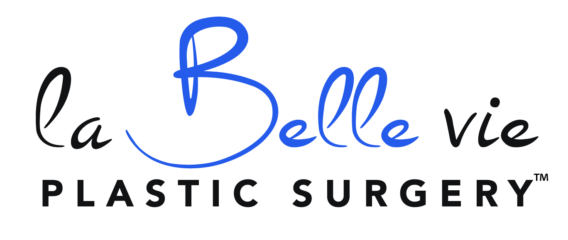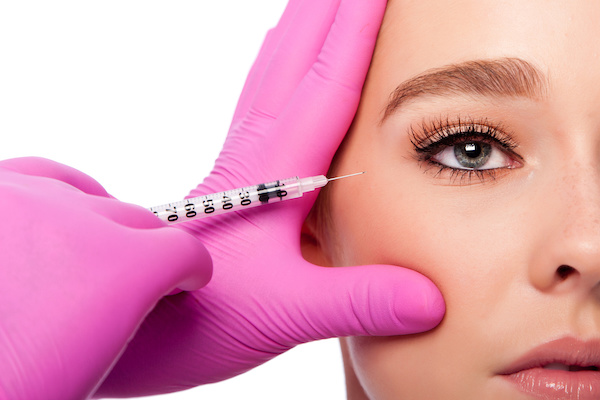Renuvion is a minimally invasive procedure that smooths skin for an overall younger and tighter-looking appearance. Other non-invasive treatments that are used to try to tighten skin are limited because they can only treat the outermost layer of skin. Renuvion is different because it delivers a unique combination of radiofrequency and helium plasma energy under…



Breast reconstruction is on the rise in America. The number of surgeries rose by 62% between 2009 and 2014, which is the largest increase in women 65 and older.
Breast reconstruction surgery reshapes one or both breasts following a mastectomy or lumpectomy. There are different breast reconstruction options women can choose from.
Breast reconstruction surgery recovery takes time and patience. Education, rest, and healthy lifestyle changes can increase healing time.
If you’re wondering what to expect after a mastectomy and reconstruction, we’ve got the answers you’re looking for. Keep reading to learn more about recovering from breast reconstruction surgery.
Recovering From Your Surgery
Breast reconstruction surgery recovery time varies from person-to-person. As you recover, it’s important to pay attention to your pain, diet, and wounds.
Inflammation and Pain
The first few days after your surgery may be painful. Hospital staff will monitor swelling and administer prescription pain medication.
Expect moderate swelling around the reconstructed region, in your underarm, and throughout your upper abdomen. The best thing to do to reduce discomfort is to relax and rest your body.
Diet
You will need to follow a strict diet during the first week of your recovery.
Avoid spicy and greasy foods for 24 to 48 hours after your surgery. Most women are advised to stick with clear liquids and light foods, like toast and cracks. Indulge in small and frequent meals to decrease bloating.
Do not drink caffeine or indulge in chocolate for one week after your surgery. Instead, stick with a diet high in protein and fiber. Try lean poultry, fish, avocados, broccoli, and beans.
Wound Care
In the week following your reconstructive surgery, keep your bandages and medical pads clean and dry.
If the bandages get wet, pat them dry. If they fall off or are accidentally removed, replace them with gauze.
You can shower 48 hours after your procedure. Your surgeon will review how to bathe without damaging your bandages.
Women who undergo implant-based surgeries will have one to two drains in each breast. Your nurse will show you how to use and record the drainage. You should bring drain records along to all post-surgery appointments.
At your one-week follow-up appointment, your surgeon will remove your bandages and pads.
Caring for Yourself During Breast Reconstructive Surgery Recovery
Follow your doctor’s instructions and keep up with proper self-care to ensure your breasts recover after surgery. Most women can resume normal life six to eight weeks after their procedure.
What to Wear
Your doctor will give you an abdominal binder to wear for three to four weeks after your surgery.
You should not wear a bra for the first three weeks after your surgery. Instead, try a light camisole or loose-fitting shirts.
When it’s time to put a bra on again, you may find certain types no longer work with your body. Many women report underwires and lace are uncomfortable after reconstruction because they press on sensitive spots, and rub against scars.
Physical Activity
Walking and light exercise are recommended after surgery but don’t do anything strenuous.
Your doctor will let you know when it’s okay to resume normal exercise again. Most women must avoid high-contact sports, high-intensity workouts, and weightlifting for four to six weeks after their surgery.
Long-Term Discomfort
You may experience numbness around the reconstructed breast for as long as 12 months after your surgery. This is normal, so don’t panic. You may also notice mild tightness around your abdomen, but this should subside after 90 days.
Massages can improve the appearance of scars and decrease linger inflammation.
Breast reconstruction is intended to help women feel comfortable in their bodies again. However, some women go through emotional adjustments following the procedure. If you have trouble, talk to a mental health professional or women who have gone through the surgery.
Potential Risks of Reconstructive Surgery
All surgeries bare risks. It’s normal to feel anxious and uncertain leading up to your procedure. But as long as you work with qualified and well-trained plastic surgeons, breast reconstruction should be a smooth process.
Complications from breast reconstructive surgery are not common. While one in three women undergo breast reconstruction procedures, the reconstruction only fails in 5% of cases.
Smokers have a higher risk of complications following surgery. Tobacco narrows blood vessels and reduces blood flow. This may result in extra scarring and prolonged recovery time.
Regardless, women need to know what warning signs to look out for following their surgery. Possible side effects after breast reconstructive surgery include:
- Bleeding and blood clots
- Fluid build-up in the breast
- Extreme swelling and discomfort
- Infection
- Chronic fatigue
- Prolonged wound healing
Most of these problems occur during or within the first 72 hours following the procedure.
Tissue death, loss of nipple sensation, and changes in the arm around the reconstructed breast can develop later. Some women experience uneven breasts and need additional surgeries to fix the problem.
The most common issue from breast implants is capsular contracture. A scar forms and tightens itself around a new implant, making the breast hard. Capsular contractures are treatable. Additional surgery may be needed to remove the scar tissue.
If you experience issues with a breast implant, such as moving, leaking, or scar tissue formations, talk with your doctor. If you experience shortness of breath, chest pains, or unusual heartbeats, seek immediate medical attention.
Schedule a Breast Reconstruction Consultation
Knowing what to expect during breast reconstruction surgery recovery can make you feel more at ease with the procedure. Keeping calm, following directions, and healthy lifestyle changes lead to fast and seamless recovery.
Are you considering reconstruction after a mastectomy? If so, let us help.
Our dedicated team of plastic surgeons can reshape your breasts and restore your confidence.
Schedule a consultation with one of our professionals to learn more about our breast reconstruction services.



